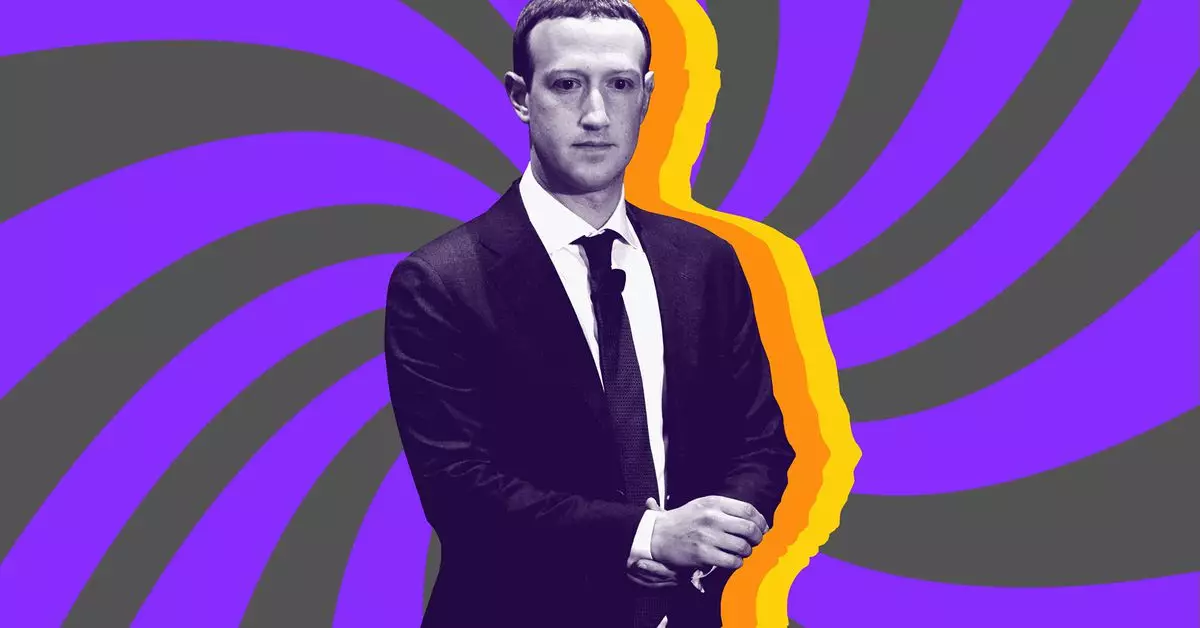In the ever-evolving landscape of technology, competition often shapes innovation and consumer choices. Recently, a conversation between Meta CEO Mark Zuckerberg and podcaster Joe Rogan shed light on an ongoing rivalry between Meta and Apple—two titans whose strategies and philosophies are starkly different. Zuckerberg’s criticisms highlight not only business concerns but also philosophical differences regarding innovation, market dynamics, and monopolistic practices. This ongoing conflict raises critical questions about the future trajectory of technology and the responsibilities of major players in the field.
Zuckerberg didn’t mince words when addressing what he perceives as Apple’s stagnation in innovation, notably remarking, “Apple hasn’t really invented anything great in a while.” He holds the view that Apple, since the revolutionary launch of the iPhone under Steve Jobs, has relied heavily on its past successes rather than forging new paths. This assertion not only illustrates a competitive viewpoint but also serves as a critique of a corporate culture that, to many, seems entrenched in complacency.
While Zuckerberg acknowledged the significance of the iPhone in technological history, he argued that Apple has not leveraged this legacy to create fresh and revolutionary products. Instead, it appears to have settled into a comfort zone, focusing more on maintaining its robust ecosystem rather than pushing out groundbreaking innovations, thereby risking its relevance in a fast-paced industry where newcomers could swiftly take the lead.
One of the most contentious points in Zuckerberg’s discussion with Rogan revolved around Apple’s App Store policies. Rogan expressed dissatisfaction with Apple’s approach, particularly their 30% commission on app transactions, which he described as exploitative. Zuckerberg echoed these sentiments, suggesting that Apple’s restrictive regulations create an uneven playing field for competitors like Meta and ultimately stifle innovation.
Zuckerberg’s observations about Apple’s “arbitrary” rules resonate with a broader narrative around monopoly practices in the technology industry. His belief that allowing third-party developers equal access to Apple’s protocols could spur a wave of competition, exemplified through potential superior alternatives to AirPods, reflects a desire for a more open marketplace where innovation is rewarded rather than stifled.
As both companies grapple with competitive pressures, regulatory scrutiny is intensifying. Apple is facing legal challenges in multiple jurisdictions for purported monopolistic practices, including a lawsuit from the U.S. Department of Justice. This scrutiny may force Apple to reconsider its restrictive policies, opening doors not just for competitors but potentially leading to the innovative breakthroughs that industry advocates yearn for.
Zuckerberg hinted at a belief that Apple’s current path—focused on preserving its own interests—might ultimately be detrimental to the company. He remarked, “If you just don’t do a good job for like 10 years, you’re just going to get beat by someone.” This perspective underscores the urgency for Apple to reassess its trajectory lest it find itself overshadowed by up-and-coming companies willing to disrupt the status quo.
Zuckerberg’s podcast conversation also delved into broader themes extending beyond the Meta-Apple rivalry, particularly in the realms of neural interfaces and augmented reality. He envisioned a future where the lines between physical and digital realities increasingly blur, facilitated by technologies such as wrist-based neural interfaces and augmented reality glasses. This convergence represents not only a leap in technological advancement but also a philosophical shift in how humans interact with technology and their environment.
He articulated a vision of a world adorned with virtual objects and interactive holograms, emphasizing that the future would challenge traditional conceptions of space and existence. The idea of a world where digital constructs seamlessly coexist with the physical is not merely aspirational; it suggests a new paradigm that could redefine how we perceive and engage with the world around us.
The rivalry between Meta and Apple encapsulates a broader narrative in the tech industry, where innovation and competition are crucial to progress. As both companies navigate these challenges, it remains to be seen whether Apple will adapt to the evolving landscape as criticisms mount or if it will continue to cling to its current strategies. Zuckerberg’s insights serve as a reminder of the ever-changing nature of technology and the importance of remaining dynamic and responsive to both consumer needs and competitive pressures. The path forward for both companies will not only determine their respective futures but also impact the entire ecosystem, influencing how technology shapes our lives in the years to come.

